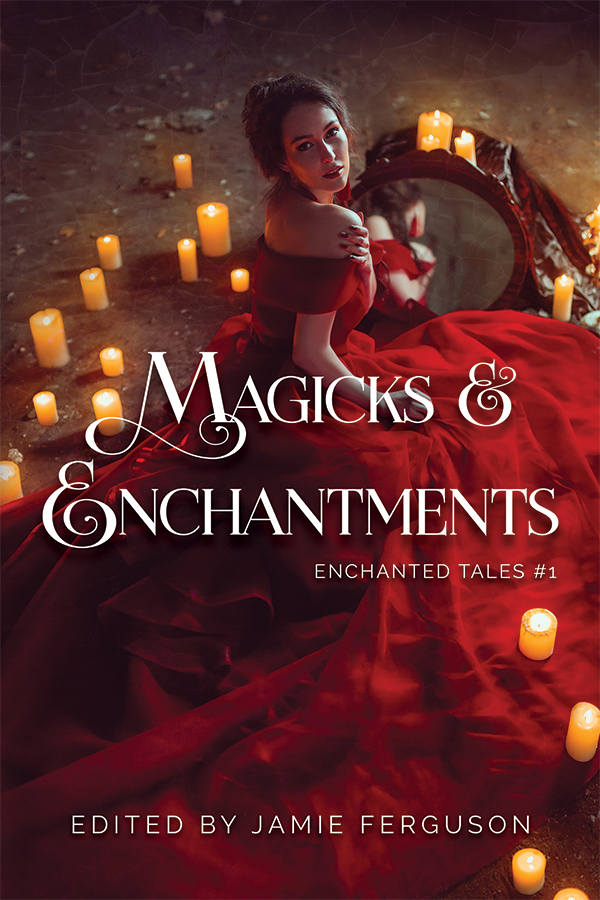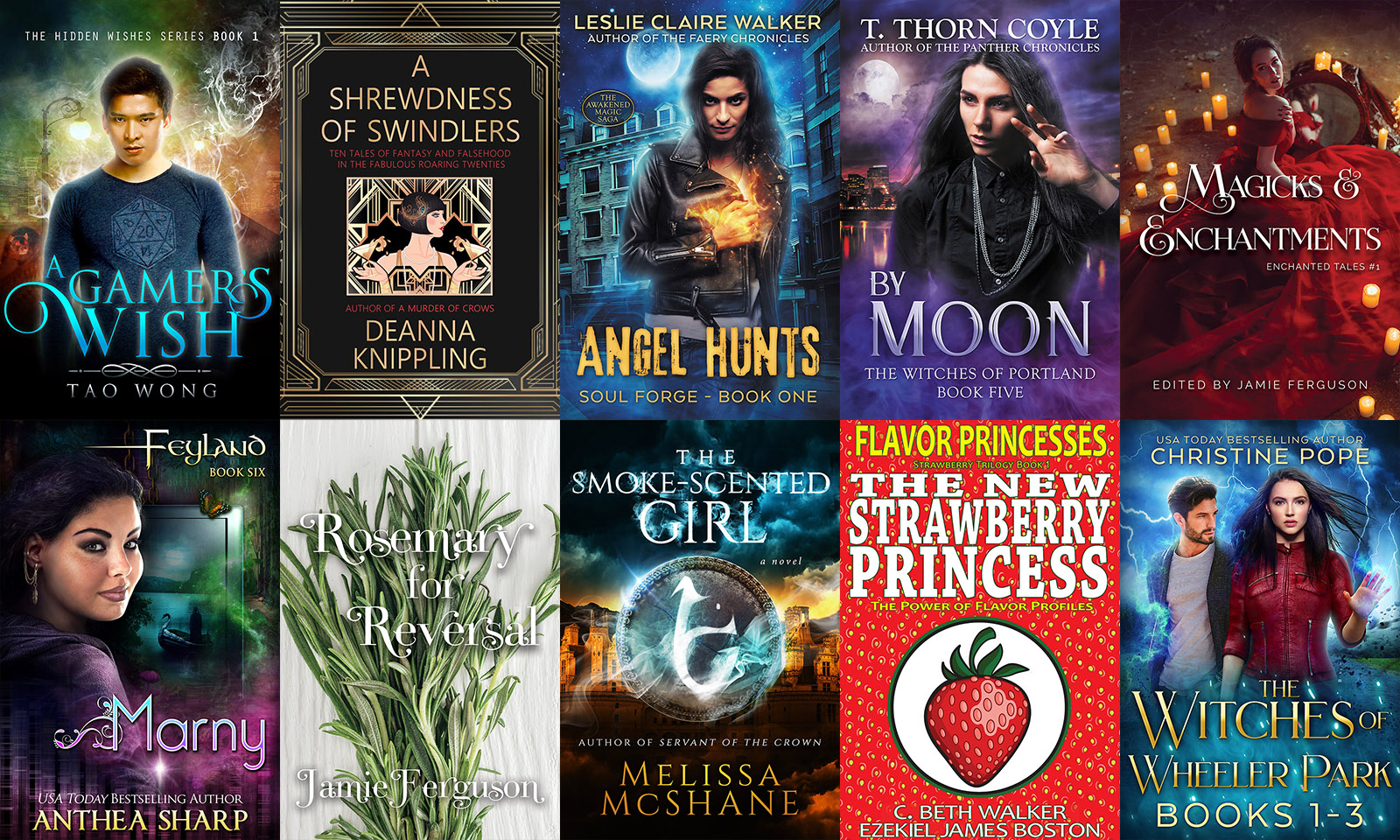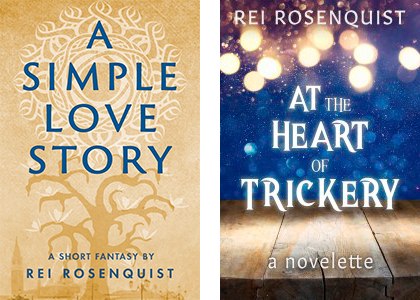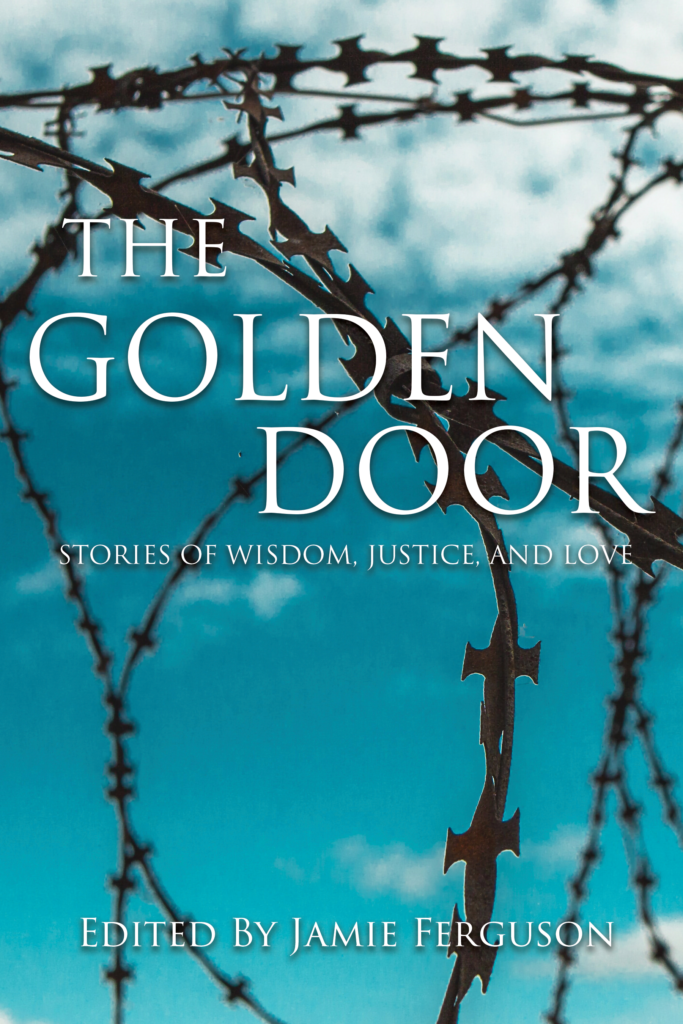“A Worthwhile Sacrifice” by Rei Rosenquist
Cedar had a simple task: get water from the northern well and bring it back to their town before dark, when all doors are sealed with magical locks to keep everyone safe inside.
Instead of completing the task on time, Cedar got distracted and dawdled.
But the wolves come every night, and tonight is no different.
“A Worthwhile Sacrifice” is one of the 15 tales in the Magicks & Enchantments anthology, which is available for a limited time in the Wild Magic bundle.
There’s the real world…
…and then there are our worlds, secret, wild, and free.
The Wild Magic bundle holds ten volumes of the magic. Ten books about what we find after we have passed through the illusion that we can live without wonder in the world, and come out the other side.
Pack your bags, put on your good walking shoes, and make sure you bring plenty of water. We’re going out into the wilderness, and who knows when we’ll be back?
The Wild Magic bundle is available through July 14th, 2021.
Excerpt
The wolves come every night. Right after dusk. As the sky becomes deep purple-gray and the air fills with the heavy scent of damp grass, we wait with piqued ears for the horn blasts that signal the beasts’ approach. Sealed up in our huts, with our magical locks drawn on every door in time, we watch their ferocity slam useless against meager wooden structures their strong bodies should—by all rights—break. But the magic protects our flesh and blood. A complex set of simple sigils drawn in charcoal on the back of the main door is all it takes to keep the monsters away. But, should any of us fail this one simple task, we are guaranteed a gruesome death.
At the first signs of the sun growing low, the entire town gathers together. Master Lock Maker and five skilled assistants draw the necessary locks on the main doors. The doors click shut just as the sun flashes and disappears. The whole town harbors all together in the sitting rooms of the most central homes. We sit beside the fire, eat and drink, knit or weave, read old scrolls, and talk story. We do everything but delay in our coming to this mandatory nightly gathering.
Today, foolishly, I’ve delayed.
—from “A Worthwhile Sacrifice” by Rei Rosenquist
The Interview
“A Worthwhile Sacrifice” is set in a town where magical locks are drawn anew each evening to keep the inhabitants safe from the wolves who come every night. What inspired you to write this fascinating story?
It all began as a recurring nightmare. The nightmares started out where I was inside a rather antique-style wooden house and someone I cared about was outside. The wolves were coming, and I had to try to get them inside with enough time to “lock” the door. As the dreams progressed, I would be outside while the wolves started coming, and I would have to gather people and try to help get us all to safety. Once I started writing this story, the nightmares slowly stopped coming. But, there were plenty of them! So, this story is actually the first in an upcoming series of short stories which I will later be collecting into a full-length novel.
Love and connection are common themes in your writing, and are key elements in “A Worthwhile Sacrifice.” Why do you so regularly focus on these themes?
The genre of romance is really where I fell in love with reading. I had always been drawn to stories in different forms, but as a child, I struggled with reading. I started learning to read & write in a German public school in the mountains outside of Frankfurt. Then, at age 9, my family returned to the USA, and without any extra tutoring, I was abruptly switched to an all-English education. It wasn’t until I picked up a Harlequin romance book from the local library bookshop that the struggle with words finally melted away. The reason I believe it was the romance genre that drew me in was because connection is another area where I have struggled in life. As a queer, nonbinary individual with undiagnosed neuro-divergency and c-PTSD from childhood trauma, I’ve always found human relationships extremely challenging. Writing about them allows me to explore relationships while at the same time gives me the space to express through my characters how important I truly think they are.
Why do you think so many people are drawn to reading stories about magic?
I think magic reminds us of how big the world is, how there’s so much we don’t know, and also how powerful we are. Magic gives us hope that there are still mysteries out there we haven’t solved, still beauty we haven’t seen, deep truths we haven’t touched. And stories about people discovering magic in themselves and in their world helps us believe that there is something bigger and deeper inside ourselves. It’s a very empowering kind of story, to discover and wrestle with a great powerful force and to overcome by sheer will and determination. Magic reminds us that even when we feel small, we are so much greater than we believe we are. We matter somehow, somewhere, to someone. Even if we feel we can’t answer the how, where, or to whom we matter, magical tales remind us that we each matter in a big way. And that gives us hope to carry on.
You call yourself a semi-nomad. Where haven’t you been yet, but would love to go to—and why?
I have yet to go anywhere on the African continent due to the complicated and negative nature of being a western white tourist there. However, I do hope to be able to travel to several places on the African continent at some point in my life once I am working in wildlife conservation. It would be a privilege to work with the many different cultures there and lend a helping hand to their massive conservation efforts working with elephants and big cats in particular. But, I have a lot of work to do both professionally in the animal field and personally in educating myself more about different African cultures and white privilege before I am prepared to make that journey.
Is there something from a legend, fairy or folk tale, or myth that you haven’t yet used in your writing, but would like to?
Yes! I have just started retelling several of the Brothers Grimm fairy tales, and the more research I do into the origins of these stories, the more I have uncovered lore that I would love to write about. I am drawn to the darker tellings of “children’s stories,” as these were always the narratives I resonated with as a child. There are only a handful of the Grimm stories that have reached pop culture, and I am excited to retell some of the darker, grittier ones that deal with difficult themes such as cannabalism and child abuse.
You rescue birds! How has this impacted your life?
One really interesting impact that rescuing birds has had was that it made me turn an eye inward to my own childhood damage. As I did so, I began examining the kinds of stories I was telling. I read through several unpublished stories I’d written long ago and examined how I expressed relationships in them. What I was surprised to see was how similar the main character’s narrative was to the story of my rescue birds. Terrified of others, turning to aggression out of a need to protect oneself, and this resulting in an isolated, lonely, and powerless existence. To bring this back to your previous question, I think a big part of being able to start telling stories about love and connection instead of isolation and despair has been largely because of my work in learning to rescue birds.
What are you working on now, and what’s fun about what you’re writing??
One of the projects I’m really excited about right now is a series of short fantasy stories that I will be releasing over the next several months. What’s fun about these stories is that while they’re not connected by main characters or even worlds, they are connected in the theme of coming of age and identity. Each one deals with a nonbinary character who sees their identity in a unique way. Each face a unique struggle and find their identity to be key in their success as individuals in the bigger world. It’s an exploration that I feel very deeply, and it’s great fun to experiment with different ways of being in wildly different worlds from our own!
About Rei
Rei Rosenquist is a queer agender (they/them) speculative fiction and romance writer who depicts a wide variety of identities struggling to find a place in a wide variety of worlds. They are also a barista, baker, musician, and lifelong semi-nomad.
Rei first remembers life as seen out the high window of a hotel balcony. Down below is a courtyard, swarms of brightly dressed tourists, and the beach. The memory is nothing but a blue-green washed image. Warmth and sunlight. Here, they are three years old, and this is the beginning of a storyteller’s life. Over the years, Rei has traveled to many countries, engaged many peoples, picked up new habits, and learned new languages. Across lands, they find constant inspiration in the stories we tell each other, the food we share with one another, the music we make together, and the world we can build when we allow ourselves to dream.
Find Rei
Website ~ Facebook ~ Twitter ~ Goodreads
Find the Wild Magic bundle!
The Wild Magic bundle is available for a limited time at StoryBundle.com/Fantasy.
Bundle buyers have a chance to donate a portion of the purchase price to the charities Mighty Writers and Girls Write Now.




